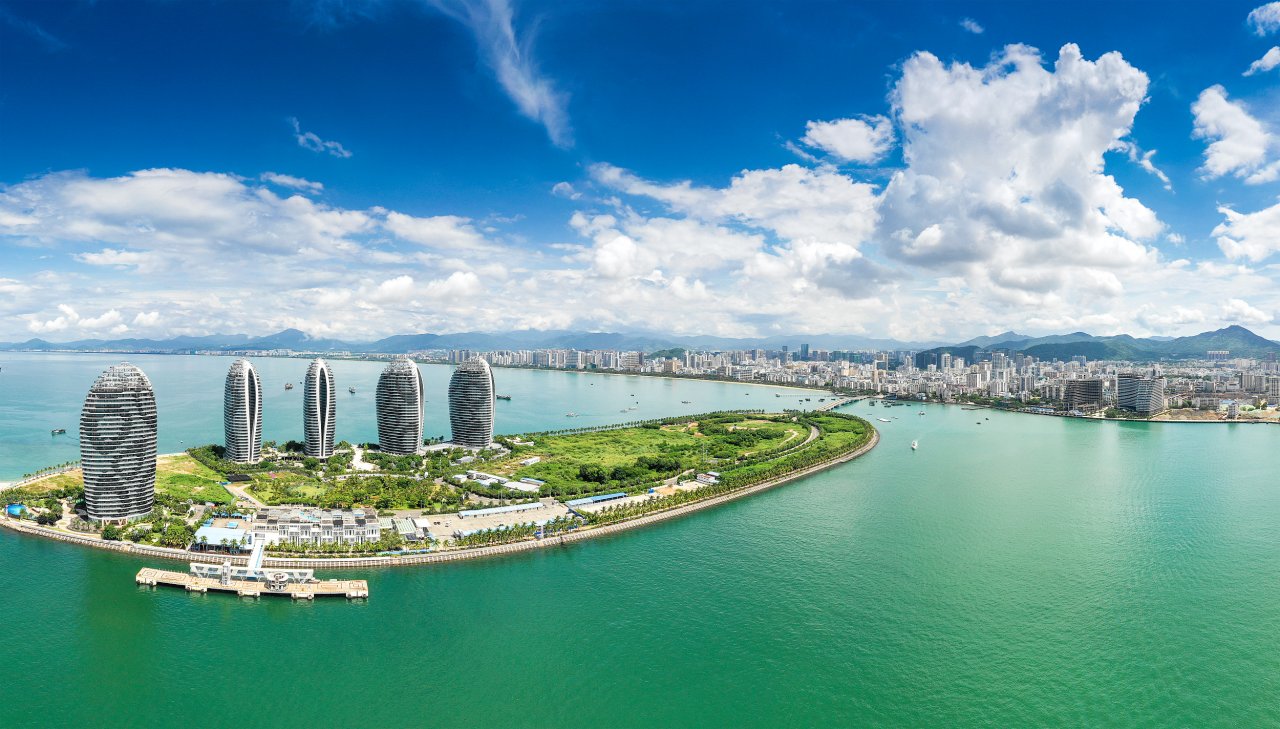
China's new Hainan Free Trade Port (FTP) Law is part of the ongoing efforts to transform the southern tropical island province Hainan into a world-leading free trade hub like Hong Kong and Singapore.
The new law came just one year after the Hainan Masterplan, released by the Chinese government in June 2020, that set out a series of measures supporting the construction of the Hainan FTP.
Now the new law lays the legal foundation of Hainan FTP and offers the region greater autonomy for delivering on comprehensive reforms and market opening.
In particular, it sets up policies and institutional systems to achieve the liberalization and facilitation of trade, investment, cross-border flow of funds, personnel exit and entry, industrial development and talent support, fiscal and taxation systems, transportation, and ensure secure flow of data.
To liberalize and facilitate trade, the law pledges to "establish a special customs supervision zone system of Hainan Free Trade Port (FTP) for independent customs clearance and operations throughout Hainan Island, and to a build high-standard port infrastructure.
Goods and articles may be brought into and out freely between overseas and the Hainan Free Trade Port, and the Customs shall carry out supervision pursuant to the law, except for those included in the list of goods and articles prohibited or restricted for importation and exportation at the Hainan Free Trade Port. Goods entering the Chinese mainland from Hainan will go through procedures in accordance with relevant import regulations, customs duties, and taxes".
As for liberalization and facilitation of investment, the law "shall implement investment liberalisation and facilitation policies, fully launch the most-simplified-approval system for investment, improve upon the investment promotion and protection system, strengthen protection of property rights, ensure fair competition, and create an open, transparent and predictable investment environment".
For the new financial and tax system, the law supports Hainan FTP to establish its own taxation system that sticks to the principles of "zero tariffs", "low tax rates", and "simplified tax regime".
For example, enterprises registered in the Hainan Free Trade Port engaged in substantive business activities in encouraged industry sectors, will be entitled to corporate income tax incentives, after 2025, this policy will be expanded to all industry sectors (except those on Hainan's investment negative list).
Moreover, also individuals in the Hainan Free Trade Port, that satisfy certain criteria, will be entitled to individual income tax incentives.
Finally, the law aims to develop key industries such as tourism, modern service industry, high-tech industry and tropical, characteristic and efficient agriculture.
Particularly emphasizing the development of an international tourism consumption centre, pushing in-depth integration of tourism and culture and sports, medical care, pension and health care, and nurtures new forms and models of tourism.
The Hainan FTP will serve as a key place to implement comprehensive deepening of reforms and test higher level of opening-up as well as an important gateway not only to the Pacific Ocean, but also to promote economic globalization.
To read the full law visit: http: //www. gov. cn/xinwen/2021-06/11/content_5616929. htm